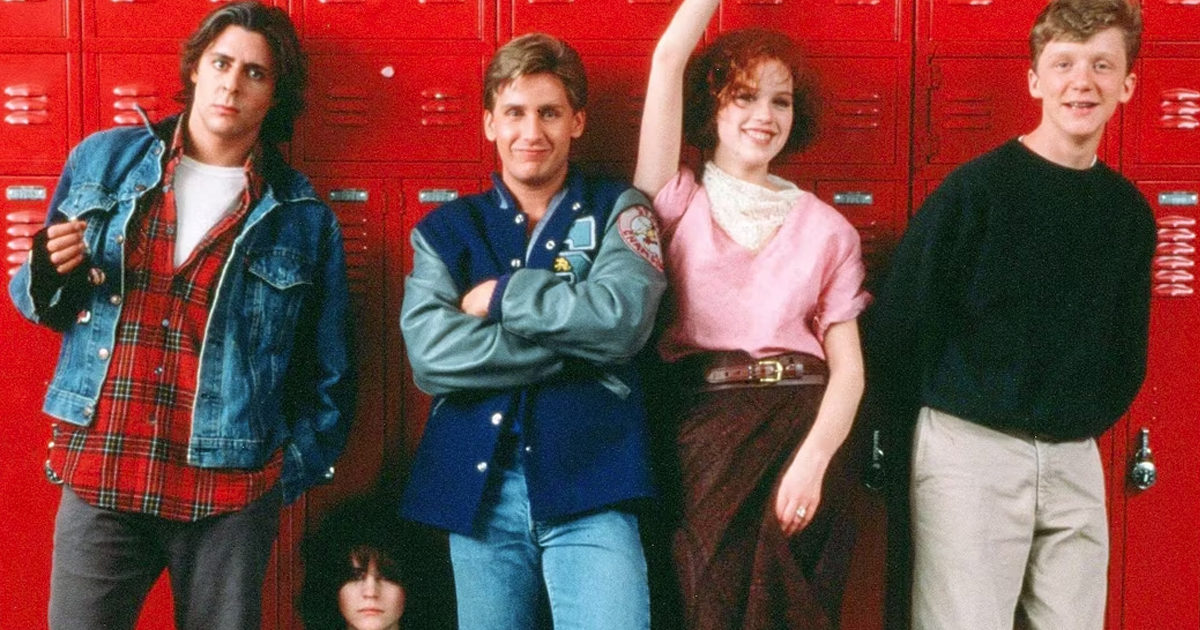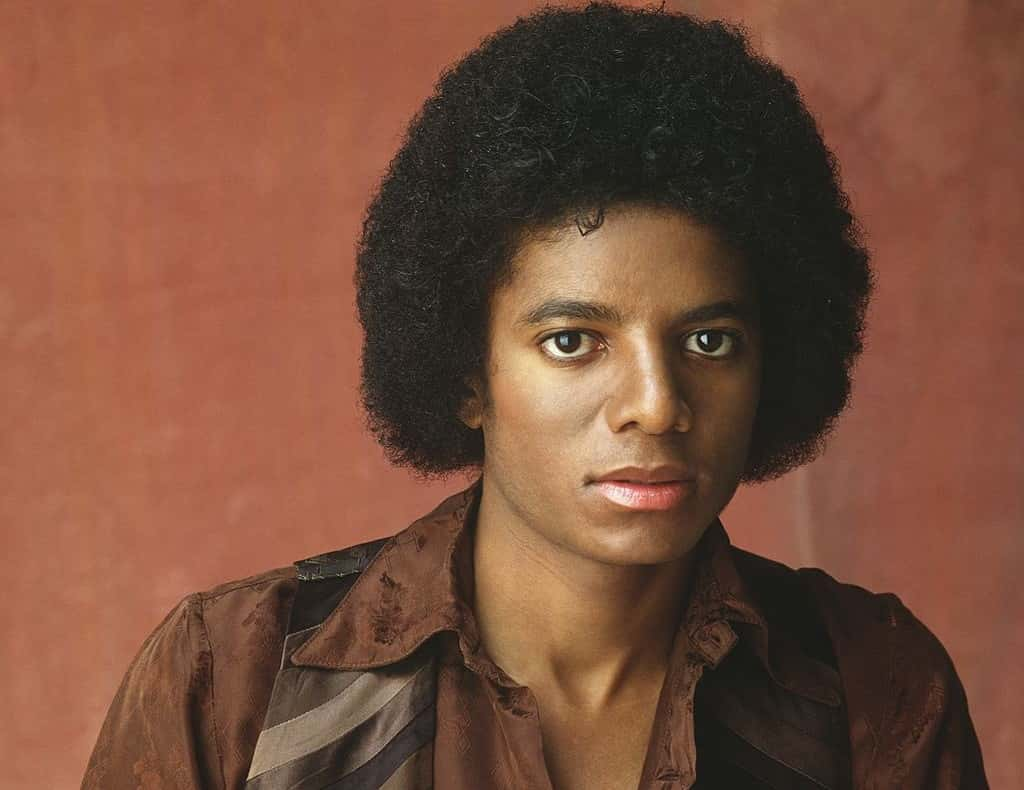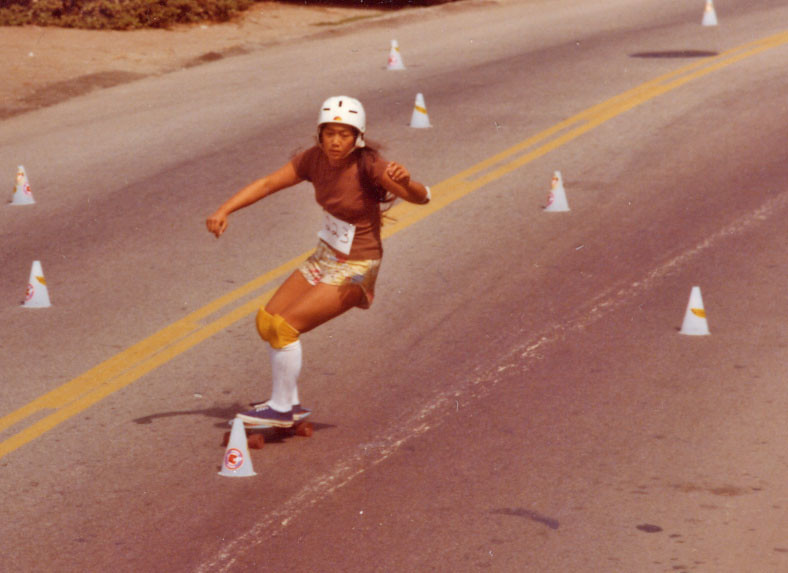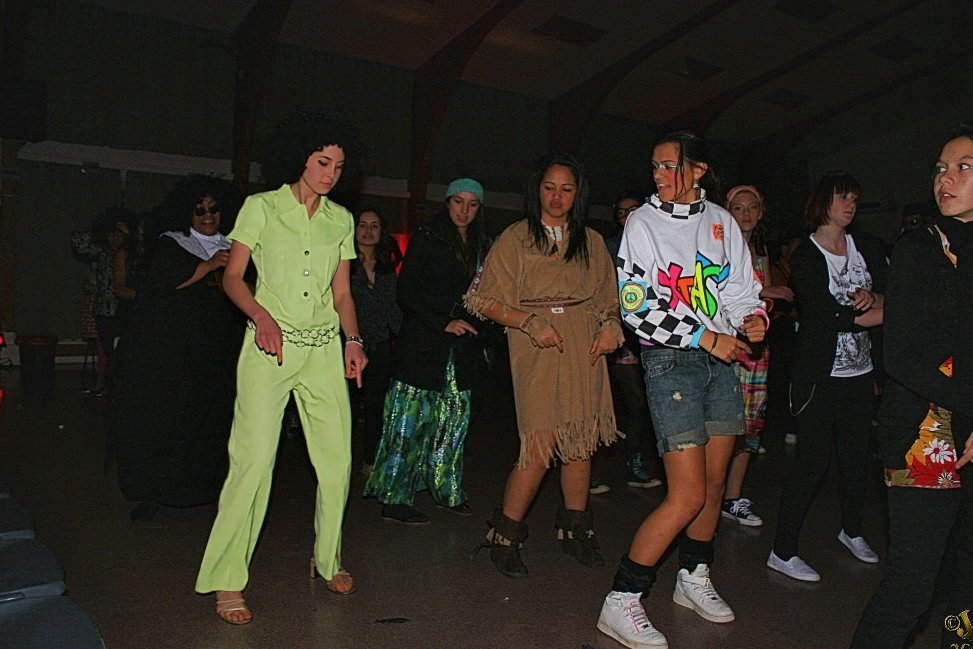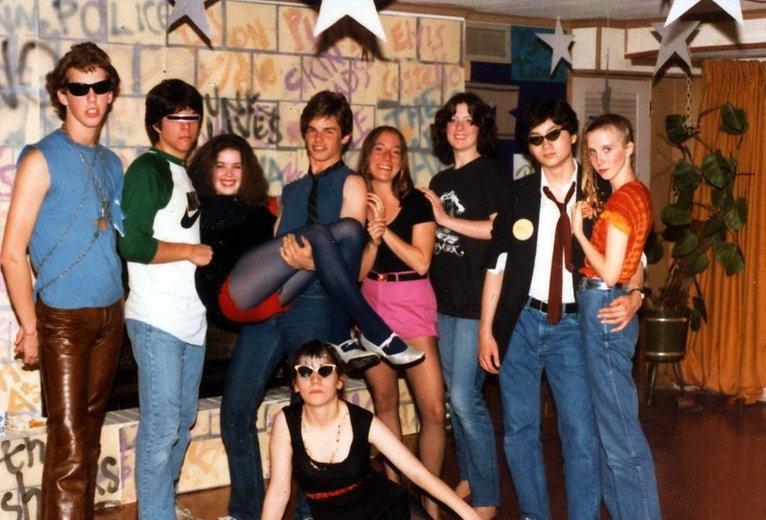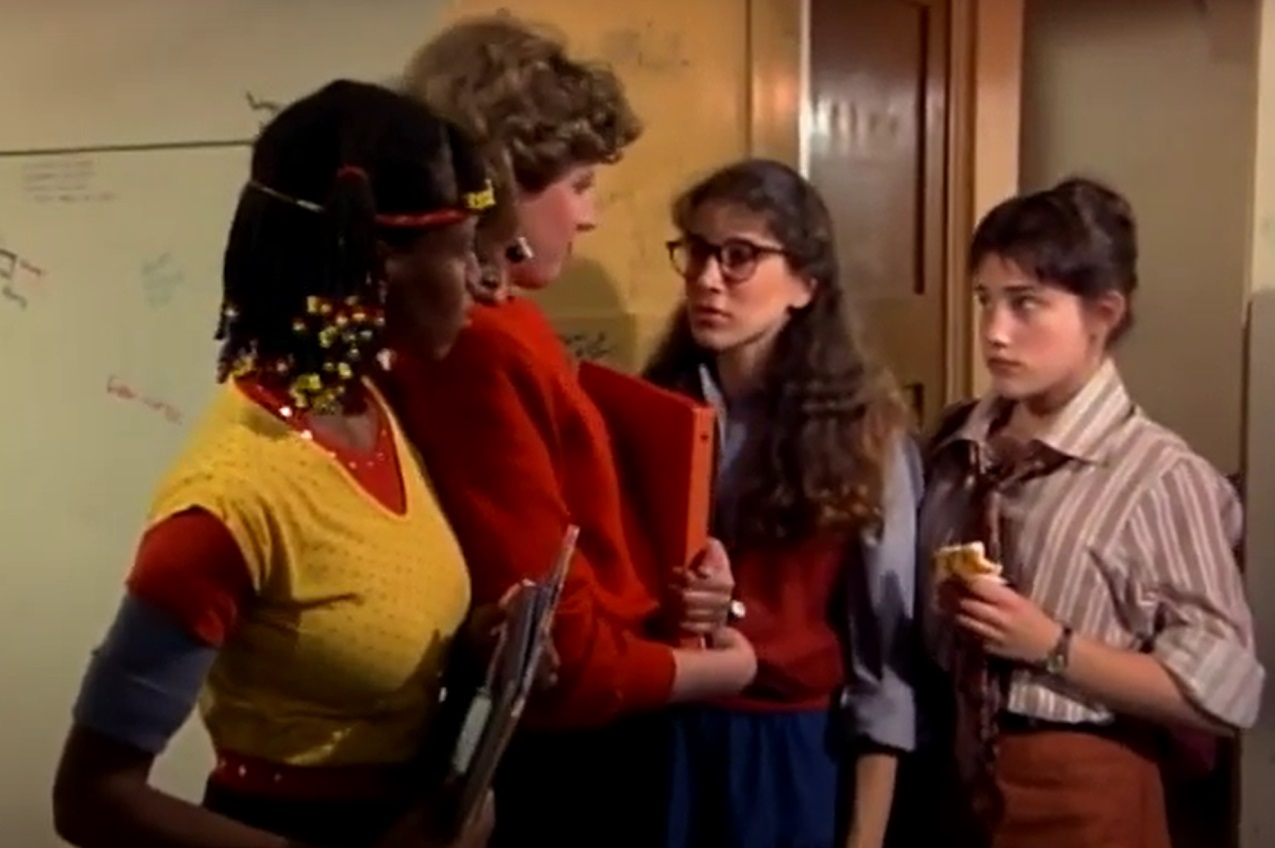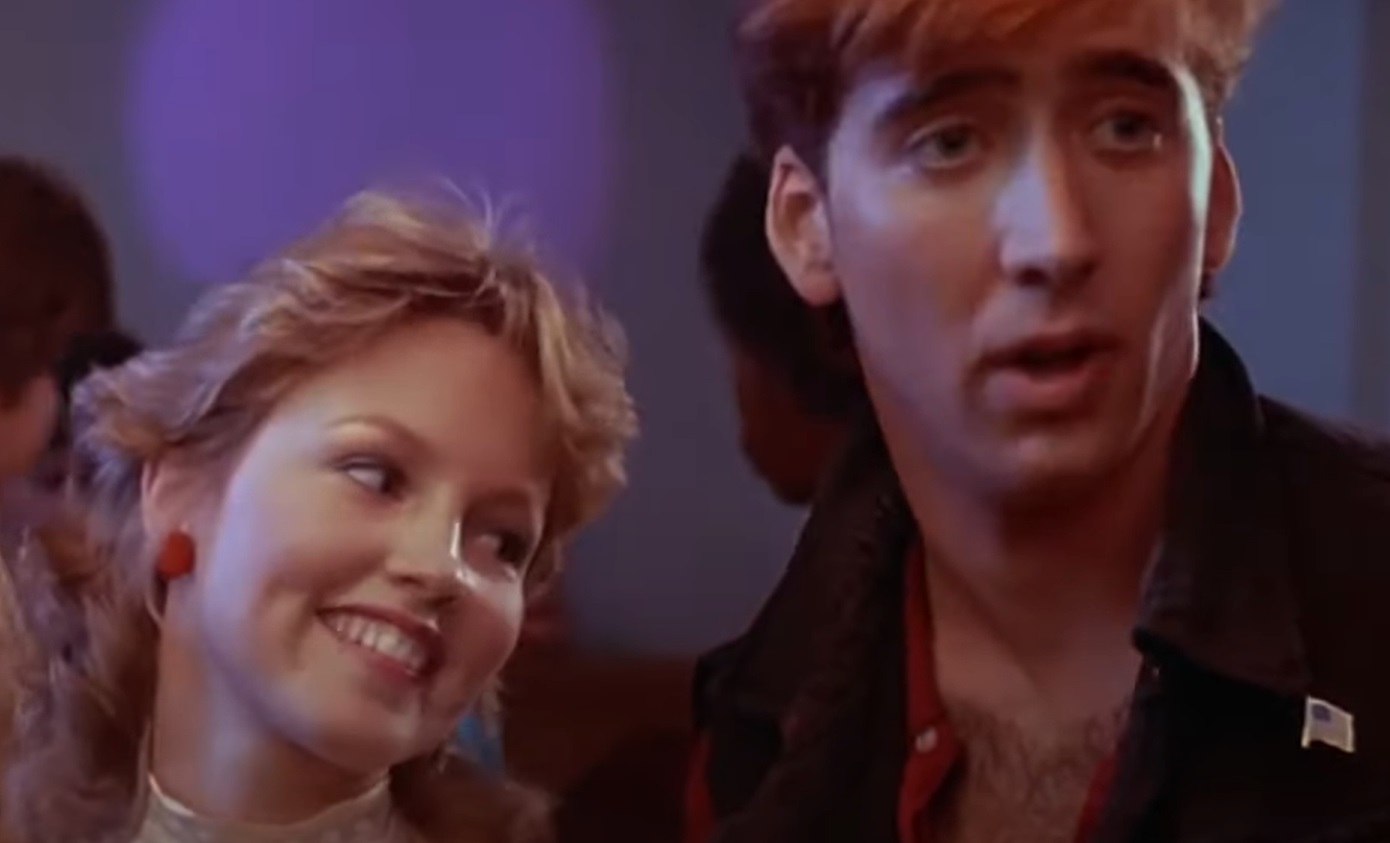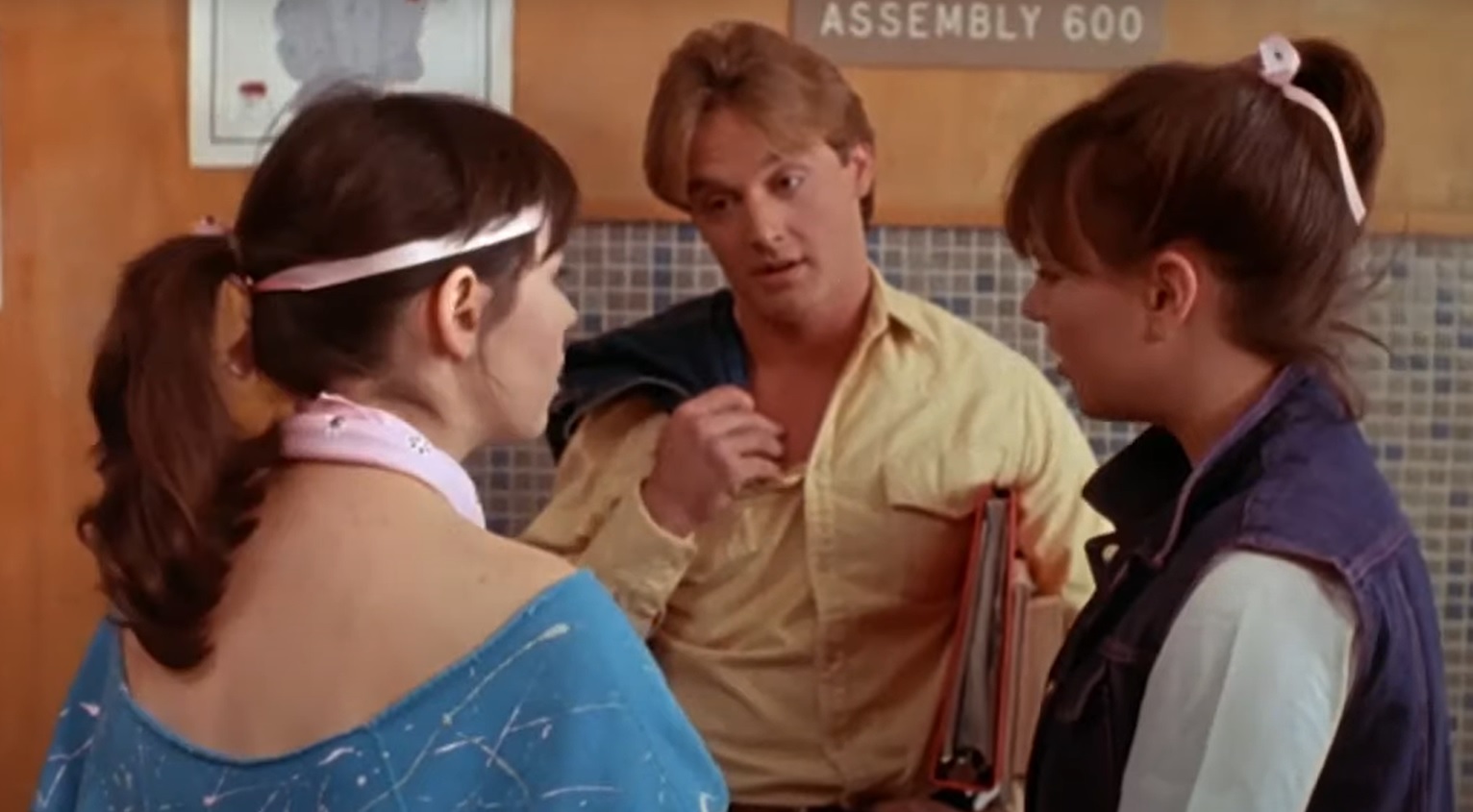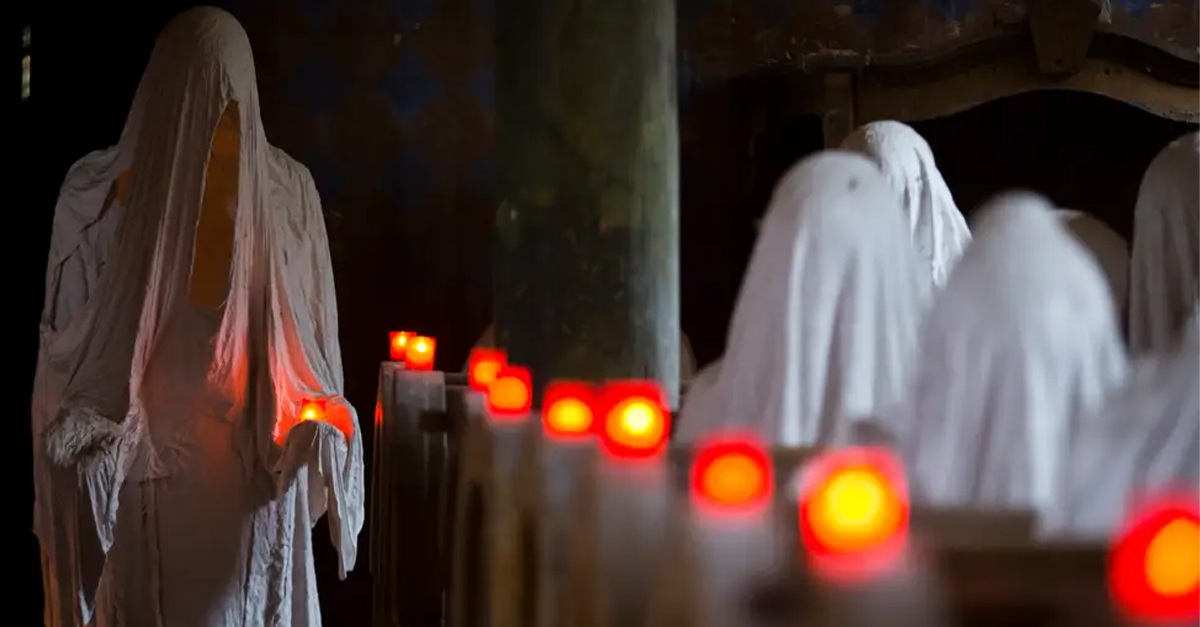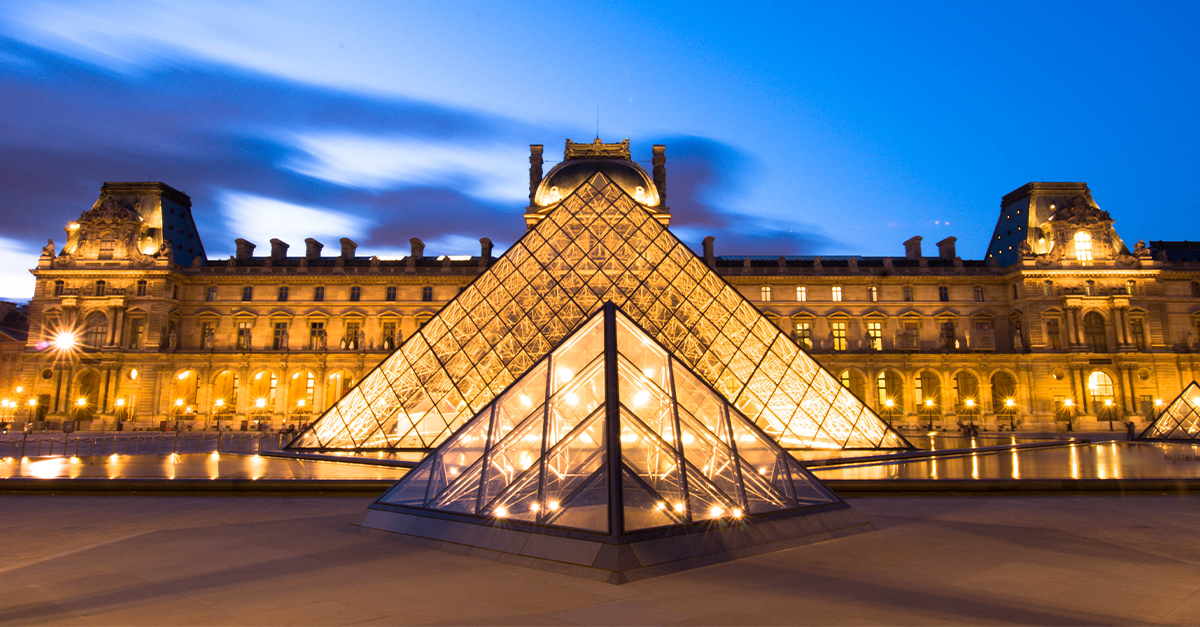Only '80s kids know
The '80s were a one-of-a-kind decade. To truly understand how life was back then, you just had to be there. From its era-defining fashion to the cool slang that still influences language today, the '80s have had a huge impact on history. This article explores the latter contribution in all its zany glory.
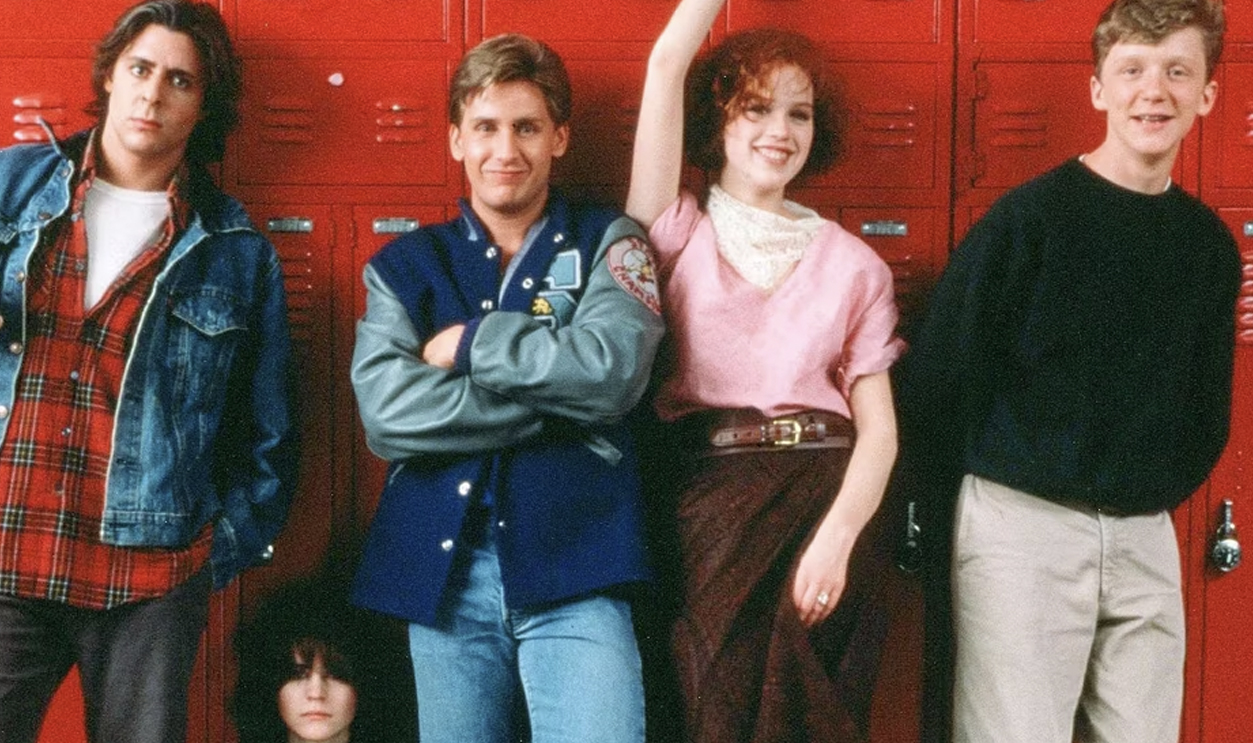
Bad
"Bad" became slang to mean very good, stylish, and remarkable, opposite its negative connotation. This shift in meaning was popularized by Michael Jackson, who had a song of the same name.
Betty
"Betty" originates from surfer and skateboarder subcultures, referring to a stylish and confident young woman. It symbolizes attractiveness and a relaxed, cool attitude of the era.
Bite me
"Bite me" began as a defiant and dismissive phrase from "bite the dust," gaining popularity in the '90s through media. It represented youthful defiance in the '80s.
Blar
"Blar" is a lesser-known slang term used to express boredom, irritation, or disregard, similar to "whatever" or "blah." Its exact origin is unclear but likely came from '80s youth culture.
Bodacious
"Bodacious" combines "bold" and "audacious" to describe something or someone as extraordinary, impressive, or appealing, It was also used in hip-hop songs to describe a person as sexy or attractive.
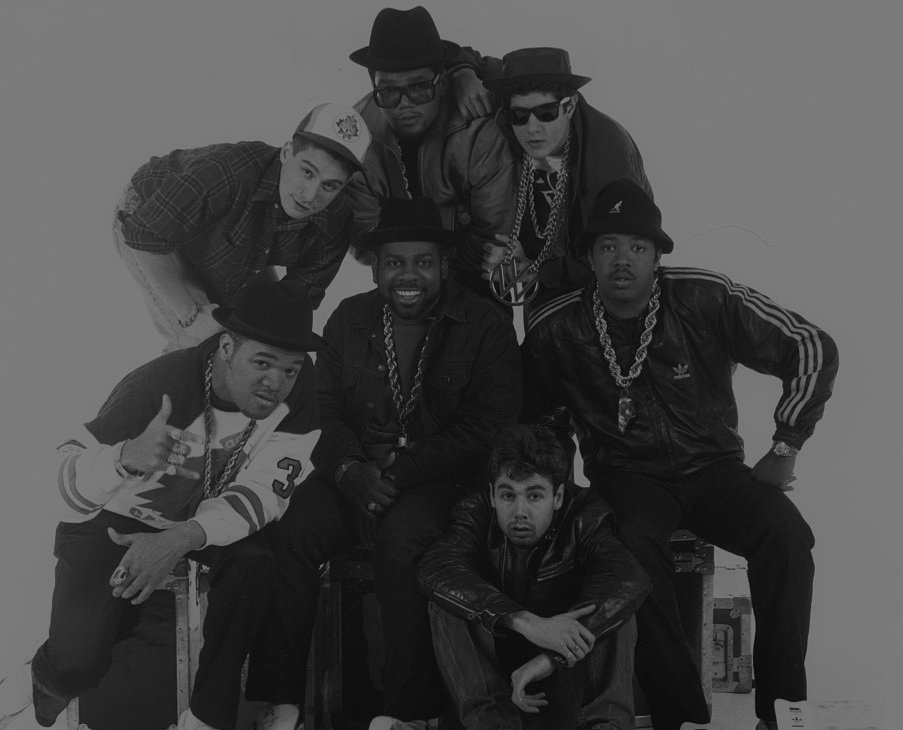 Laura Levine, Wikimedia Commons
Laura Levine, Wikimedia Commons
Bogus
"Bogus" is used to describe something deceptive or fake. It actually originated in the 19th century for fake money. In the '80s, it gained popularity among youth as a way to express disapproval.
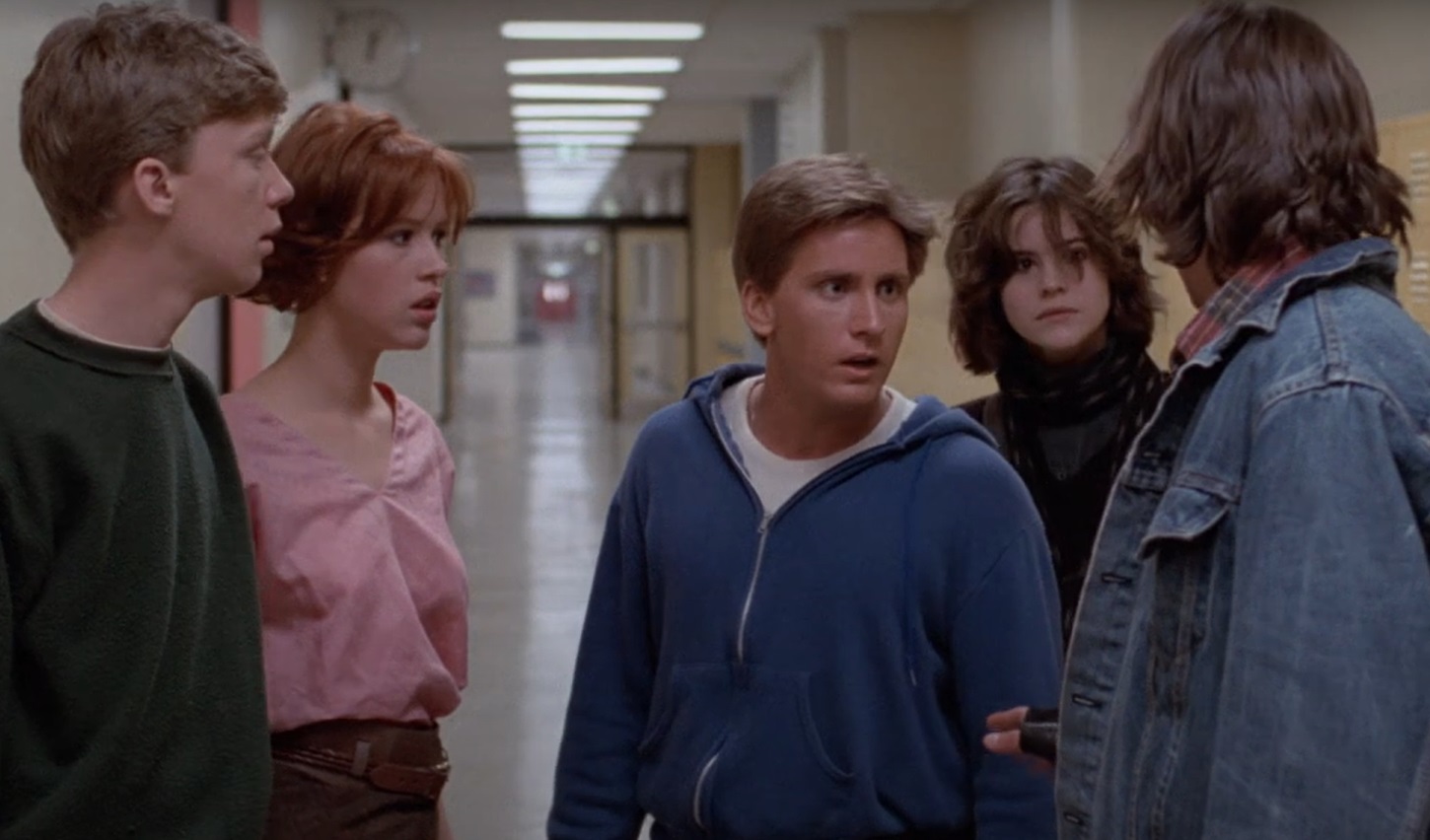 Universal, The Breakfast Club (1985)
Universal, The Breakfast Club (1985)
Brill
The term "brill" originated from "brilliant" in '80s British slang, signifying admiration for something exceptional. Popular with youth then, it reflected the era's love for short, concise language.
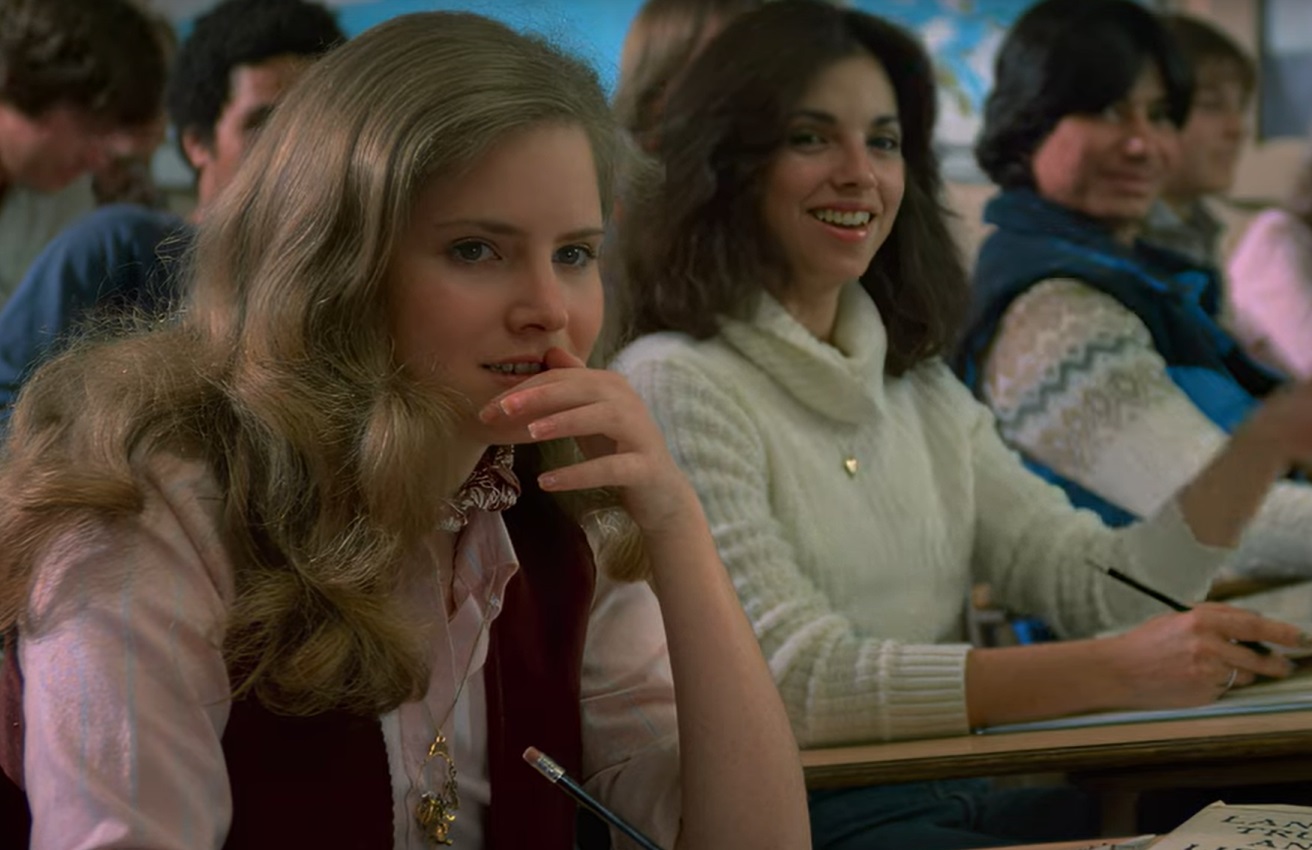 Universal, Fast Times at Ridgemont High (1982)
Universal, Fast Times at Ridgemont High (1982)
Chill pill
"Chill pill" is used to tell someone to relax and cool down. Originating in the US, it humorously suggests using medicine to ease stress (but only figuratively, of course).
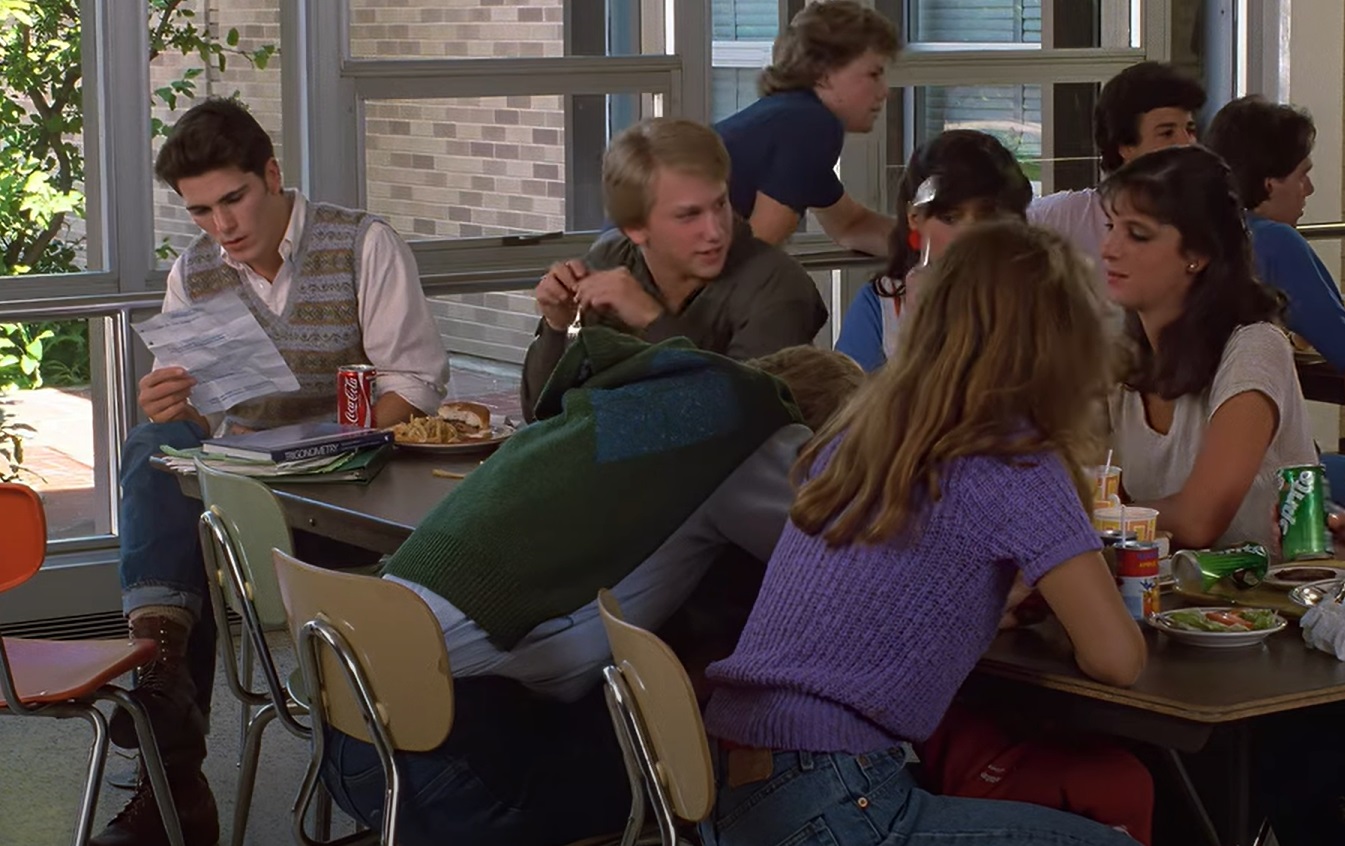 Universal, Sixteen Candles (1984)
Universal, Sixteen Candles (1984)
Cocooning
In the 1980s, trend forecaster Faith Popcorn popularized the term "cocooning," describing people retreating to their homes for safety and comfort due to societal uncertainties and advancements in home entertainment technology.
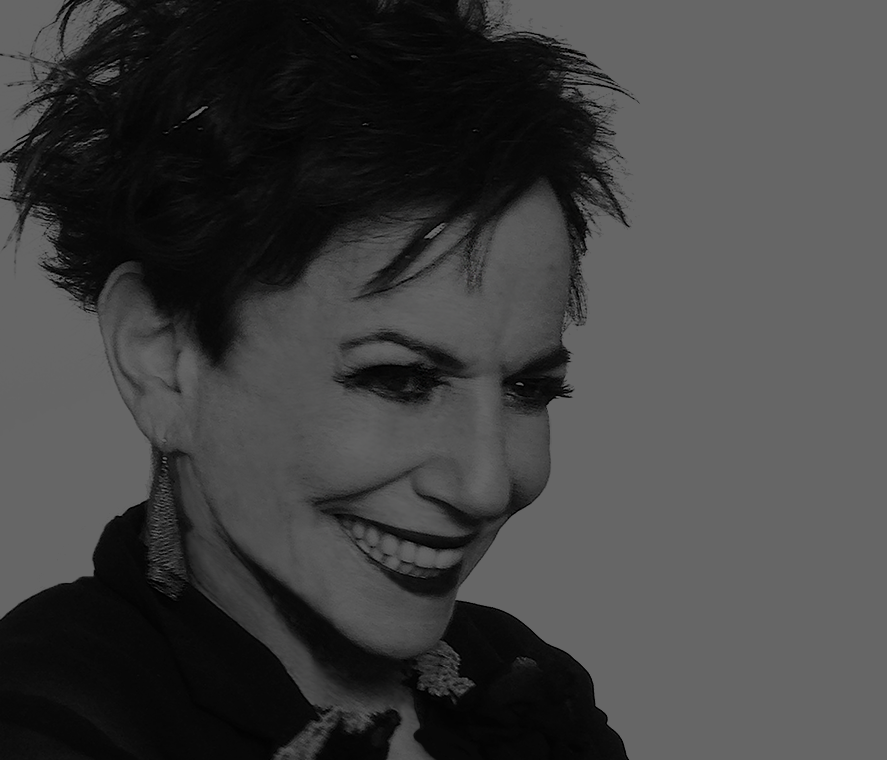 Faith Popcorn's BrainReserve, Flickr
Faith Popcorn's BrainReserve, Flickr
Dipstick
"Dipstick" is a term used informally to mock someone for being silly or incompetent, originating from automobile terminology and later adapted to colloquial speech in the 1980s.
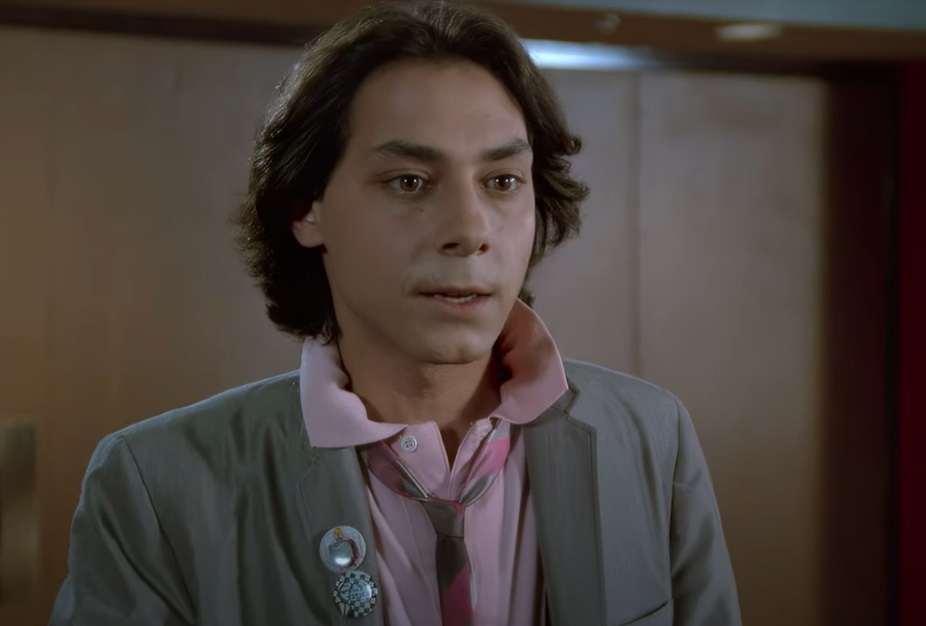 Universal, Fast Times at Ridgemont High (1982)
Universal, Fast Times at Ridgemont High (1982)
Eat my shorts
Bart Simpson popularized the phrase "eat my shorts" on "The Simpsons" as a funny way to reject or show contempt. The word reflects the '80s youth culture's defiant spirit. It symbolizes humorous rebellion and remains widely used.
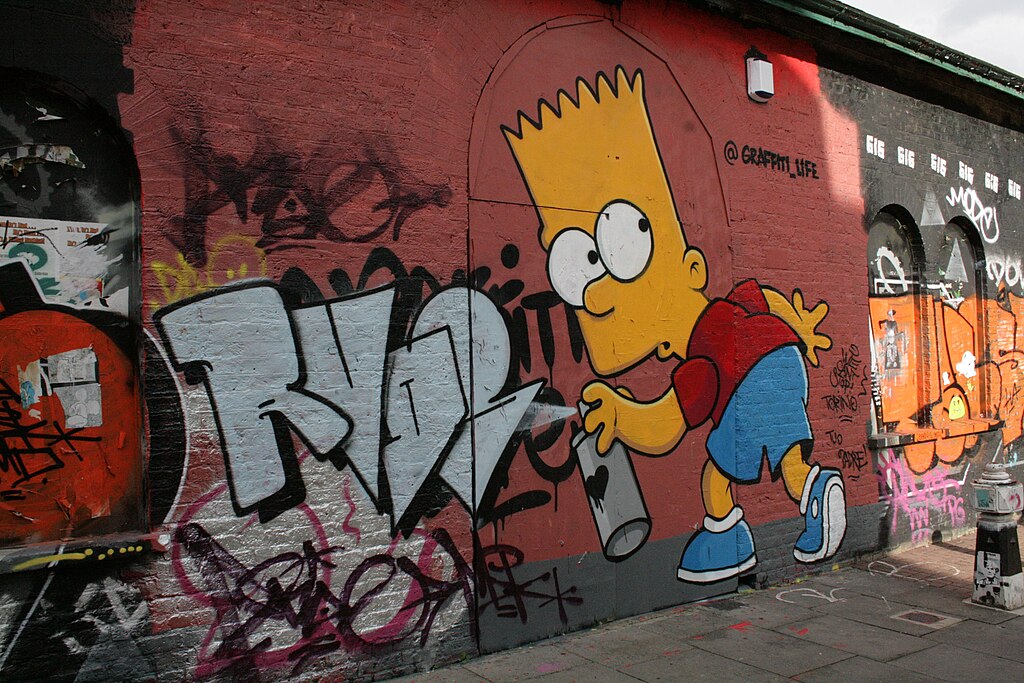 KylaBorg, CC BY 2.0, Wikimedia Commons
KylaBorg, CC BY 2.0, Wikimedia Commons
Fantabulous
"Fantabulous" is a blend of "fantastic" and "fabulous." It embodies the lively essence of the '80s and was a commonly-used word by teenagers to show excitement.
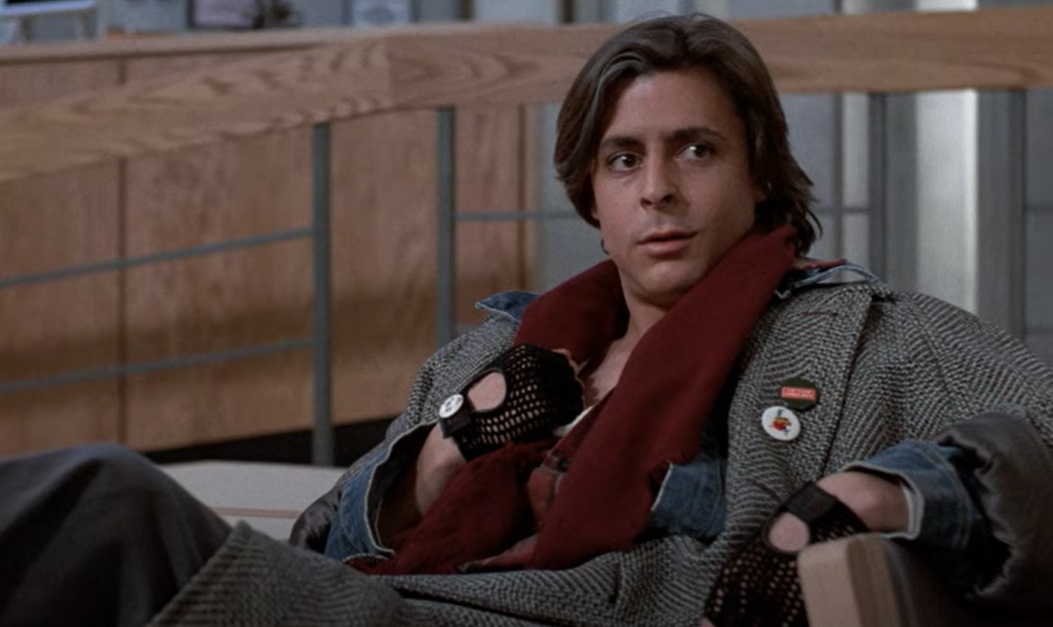 Universal, The Breakfast Club (1985)
Universal, The Breakfast Club (1985)
Gag me with a spoon
Originating from Valley Girls, "gag me with a spoon" reflects '80s youth culture with its exaggerated and theatrical language. Used to show intense dislike, it became popular in media.
Gnarly
"Gnarly" originated in surfing for challenging waves, evolved to mean radical or extraordinary. It represents the '80s spirit, used by youth to show enthusiasm or admiration for something.
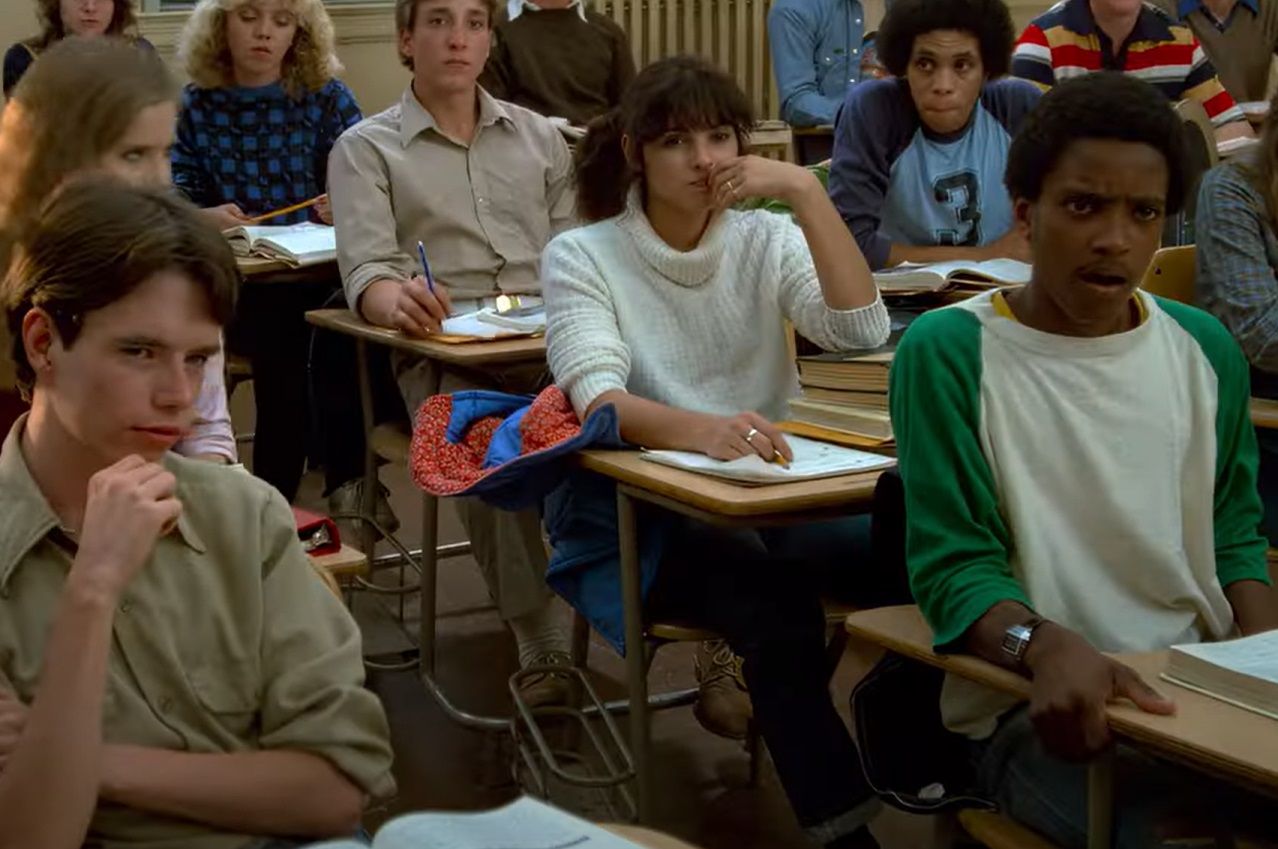 Universal, Fast Times at Ridgemont High (1982)
Universal, Fast Times at Ridgemont High (1982)
Grody
"Grody" derived from "grotesque," and it's slang for unpleasant or repulsive. It gained popularity among American youth in the '80s, especially teenagers, as a way to express disgust.
Hang ten
"Hang ten" comes from surfing, where a surfer balances with all toes hanging over the front edge. It symbolizes stylish surfing and impressive actions.
Hella
"Hella" emerged in California, signifying "extremely" or "a lot." It was used in casual conversation by youth in the '80s, and has since spread to other locations as a popular expression.
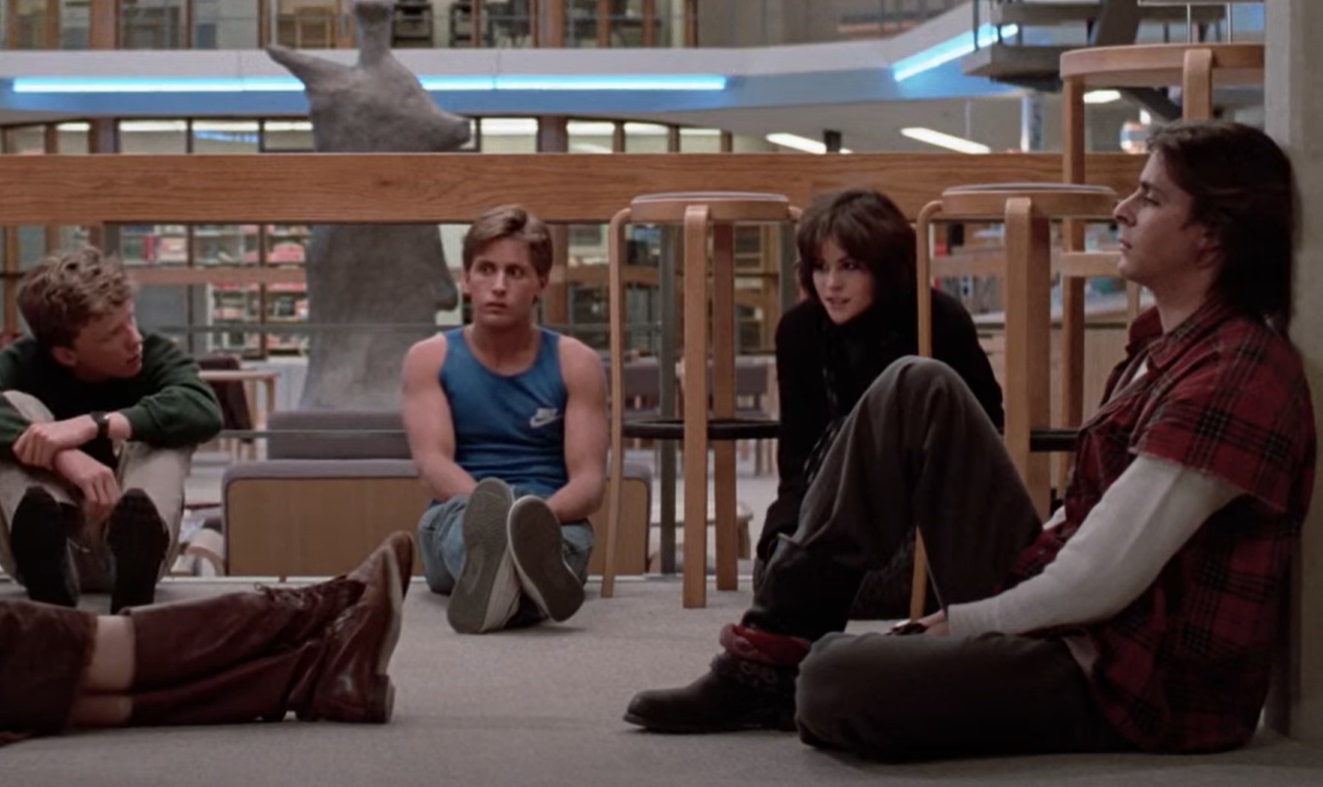 Universal, The Breakfast Club (1985)
Universal, The Breakfast Club (1985)
Mosey
Since the '80s, "Mosey" became popular again. It means to move slowly or leisurely. People use it to suggest a relaxed pace. For example: "Let's mosey to the store."
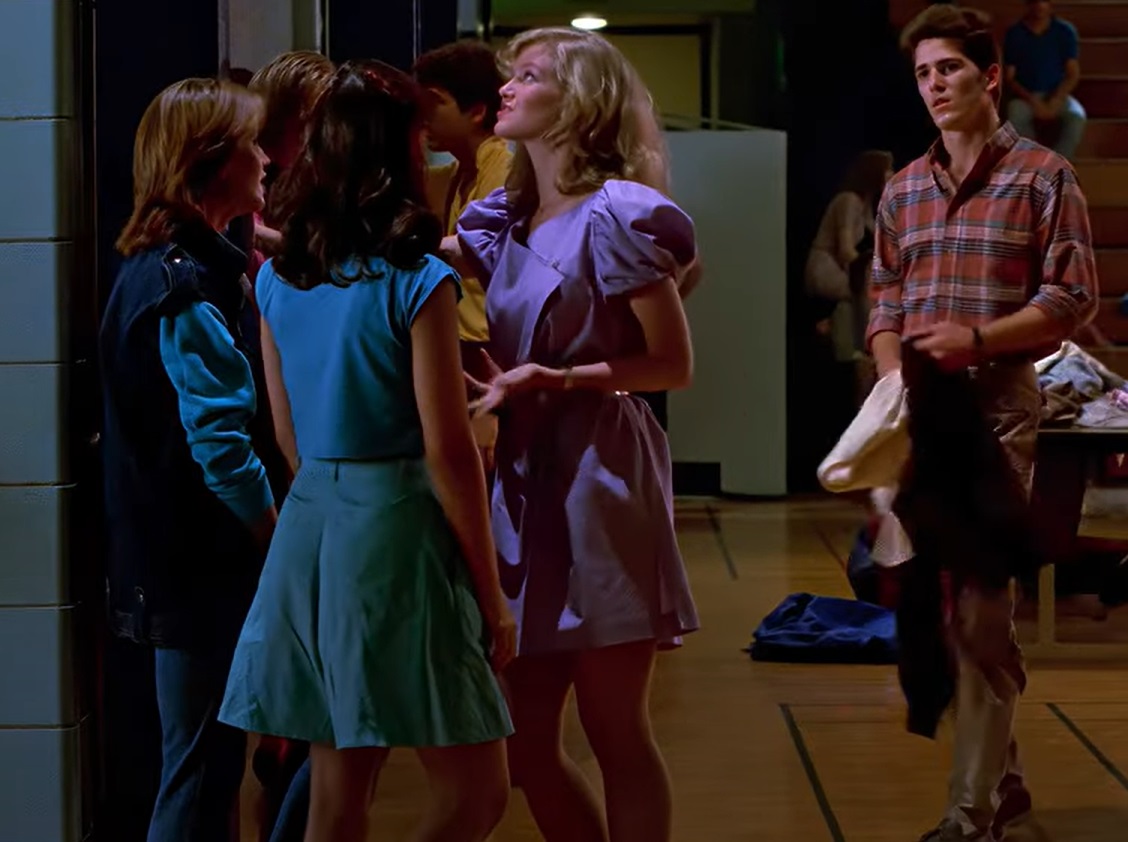 Universal, Sixteen Candles (1984)
Universal, Sixteen Candles (1984)
Mung
"Mung" is a colloquial term meaning something repulsive or filthy, often used informally. Its origins are uncertain, but it was popular in the 1980s to describe unpleasant things.
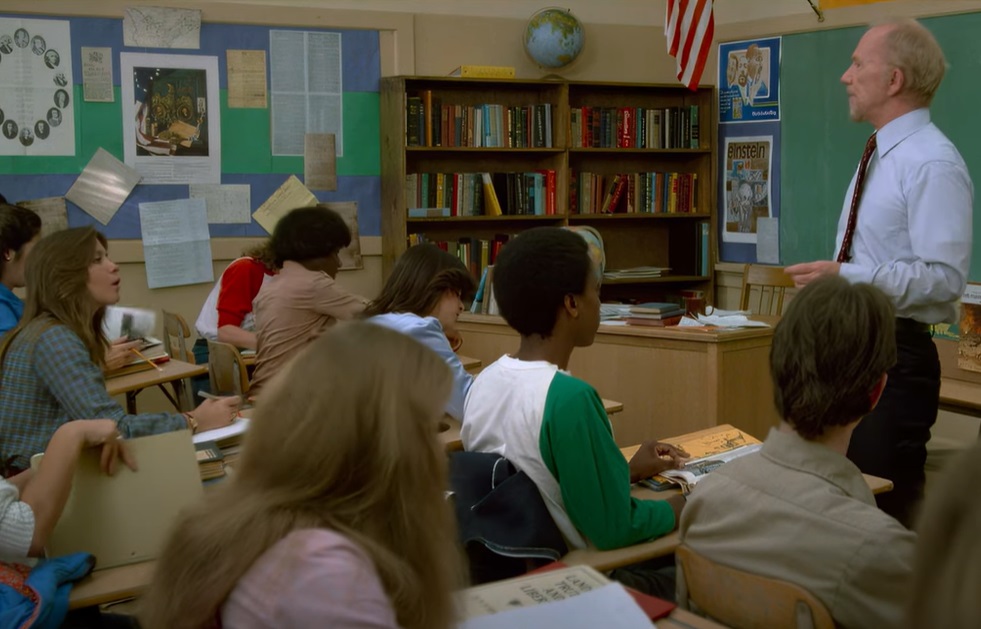 Universal, Fast Times at Ridgemont High (1982)
Universal, Fast Times at Ridgemont High (1982)
Narbo
"Narbo" was a slang term used to mock someone for being uncool or foolish, possibly originating from a blend of "nerd" and "dweeb." It was used for taunting or as an insult.
Neato
"Neato" was a popular slang term among teenagers and young adults to express approval for something cool or fantastic. The word is still used today, though much less frequently.
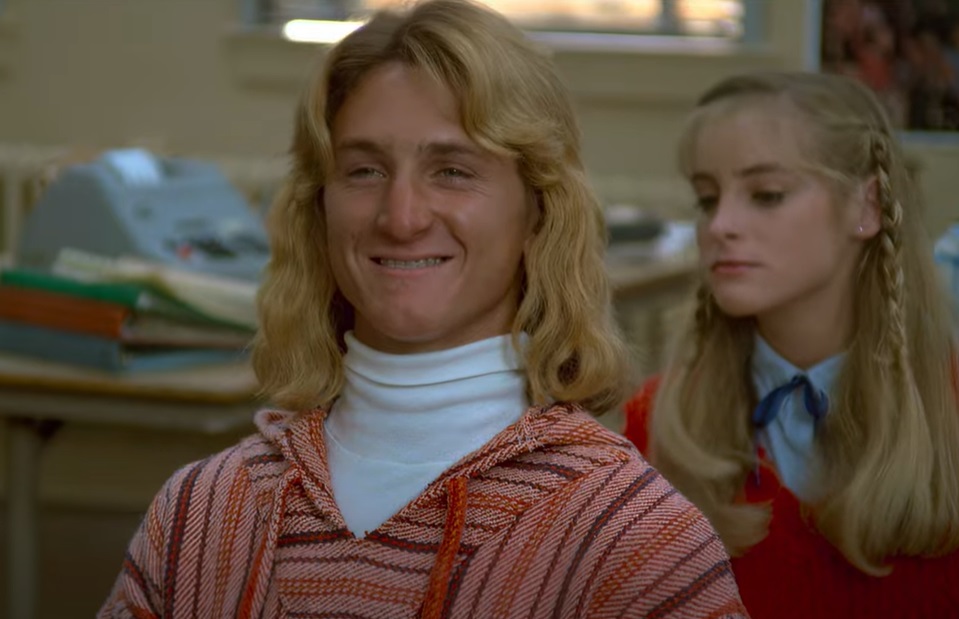 Universal, Fast Times at Ridgemont High (1982)
Universal, Fast Times at Ridgemont High (1982)
No duy
"No duy" meant "no kidding" or "of course," used informally with humor to show agreement or understanding among friends in '80s lingo. It may have originated as an alternate to "no duh."
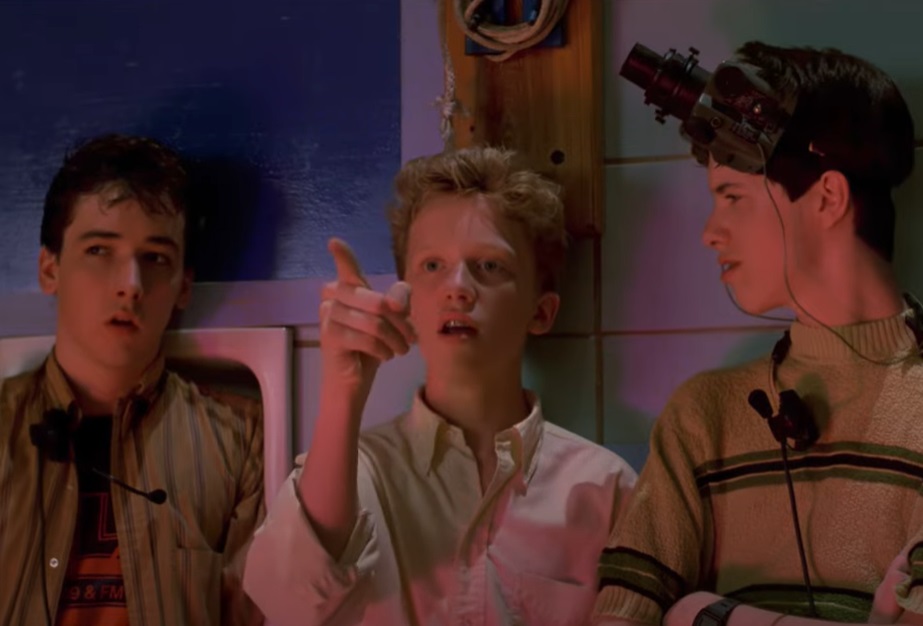 Universal, Sixteen Candles (1984)
Universal, Sixteen Candles (1984)
Ooglay
"Ooglay" was used to describe unappealing or unsightly things, likely originating from a lighthearted way of saying "unattractive." People casually used it to express dislike.
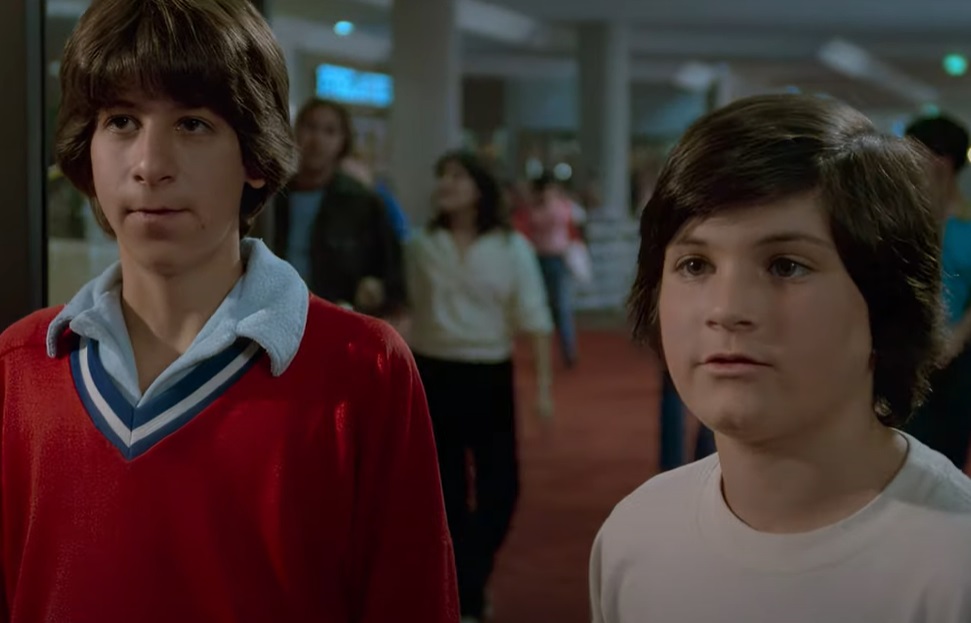 Universal, Fast Times at Ridgemont High (1982)
Universal, Fast Times at Ridgemont High (1982)
Psychedelic
"Psychedelic" originated in the 1960s to describe mind-altering art, music, or experiences. In the 1980s, it referred to vibrant, eccentric items in fashion and design, indicating something visually striking and unique.
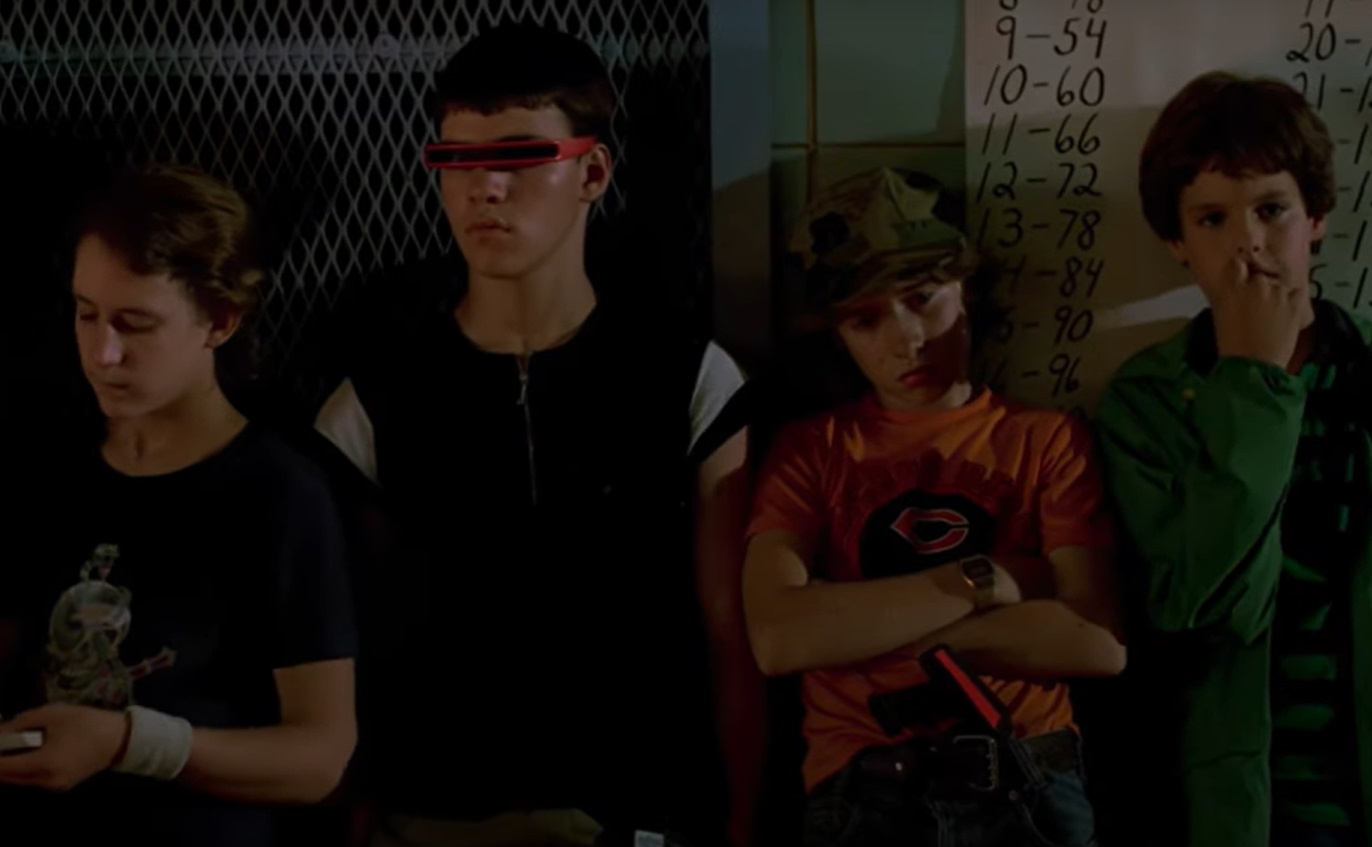 Universal, Sixteen Candles (1984)
Universal, Sixteen Candles (1984)
Rad, radical
Youth commonly used "rad" or "radical" to express something extremely cool or thrilling. Originating from "radical," it described something being different and coming from deep within.
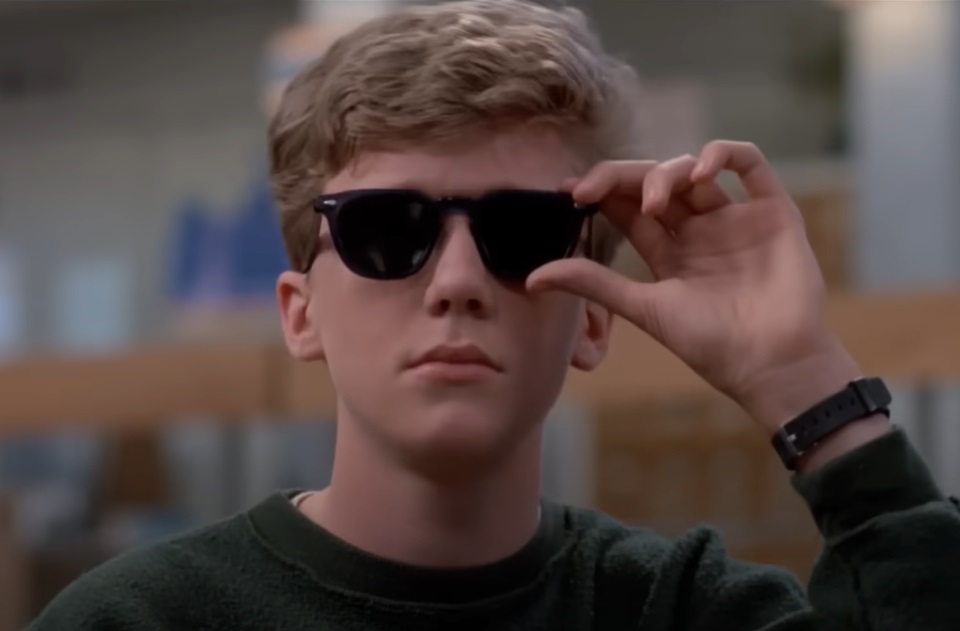 Universal, The Breakfast Club (1985)
Universal, The Breakfast Club (1985)
Ralph
"Ralph" refers to vomiting stomach contents due to overeating or drinking. Originating from vomiting noise, it indicates feeling ill and vomiting.
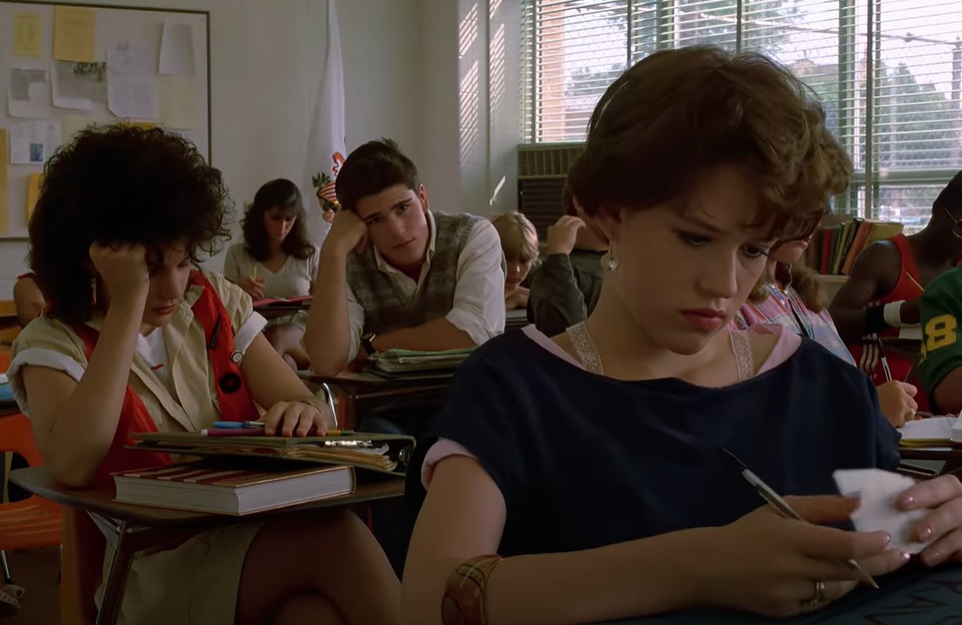 Universal, Sixteen Candles (1984)
Universal, Sixteen Candles (1984)
Righteous
In the '80s, "righteous" was a popular slang word used to praise something impressive or favorable. The word is derived from older English meaning morally correct.
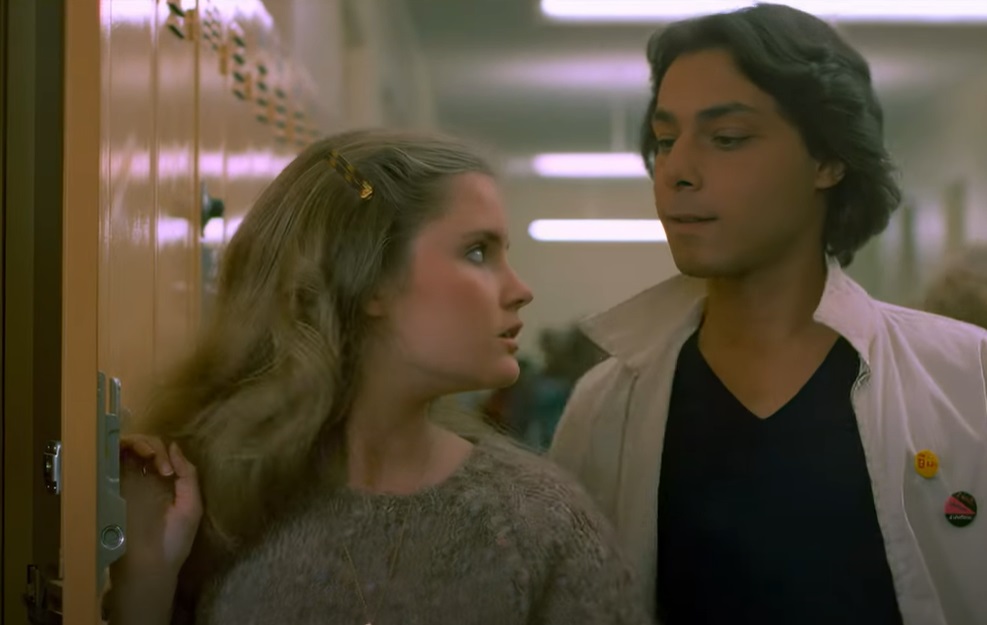 Universal, Fast Times at Ridgemont High (1982)
Universal, Fast Times at Ridgemont High (1982)
Spaz, spazoid
"Spaz" or "spazoid" were informal terms to mock someone's foolish or clumsy behavior, possibly originating from "spasm." It was used casually to tease others for their lack of coordination.
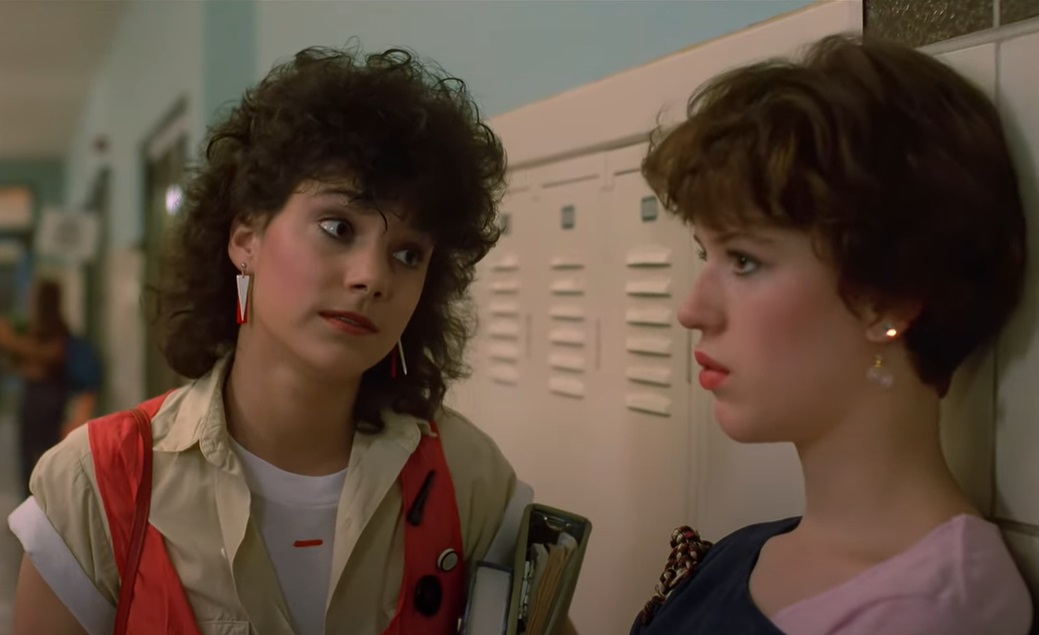 Universal, Sixteen Candles (1984)
Universal, Sixteen Candles (1984)
Trippin'
In the 1980s, "trippin'" was used to describe odd behavior, originating from psychedelic experiences but not always substance-related. It indicated someone acting strangely or disconnected from reality in a relaxed manner.
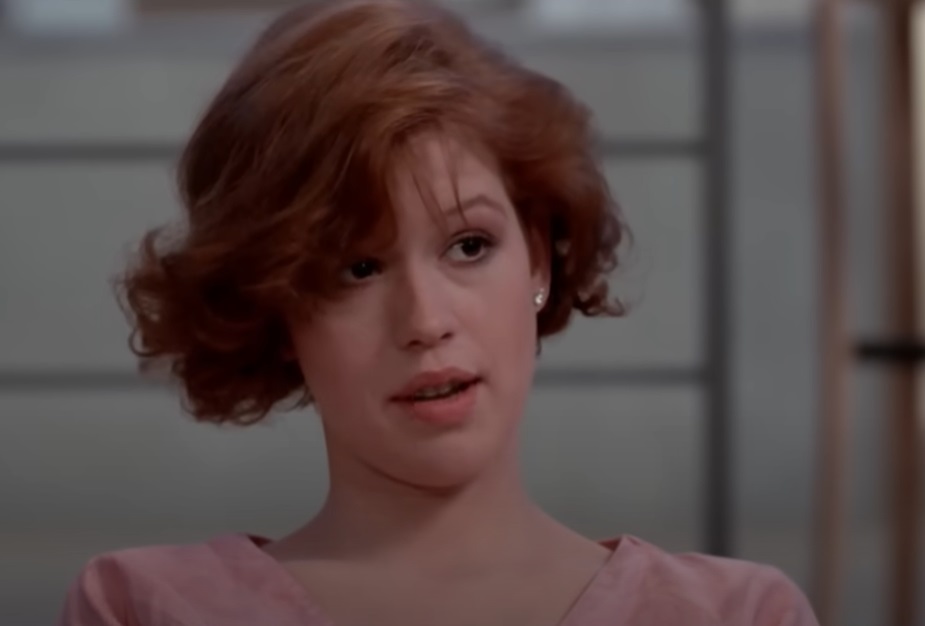 Universal, The Breakfast Club (1985)
Universal, The Breakfast Club (1985)
Tubular
"Tubular" was a popular term among youth to describe something cool or thrilling, originating from the shape of a perfect surfing wave. For added effect, some people would add the word "totally" before it.
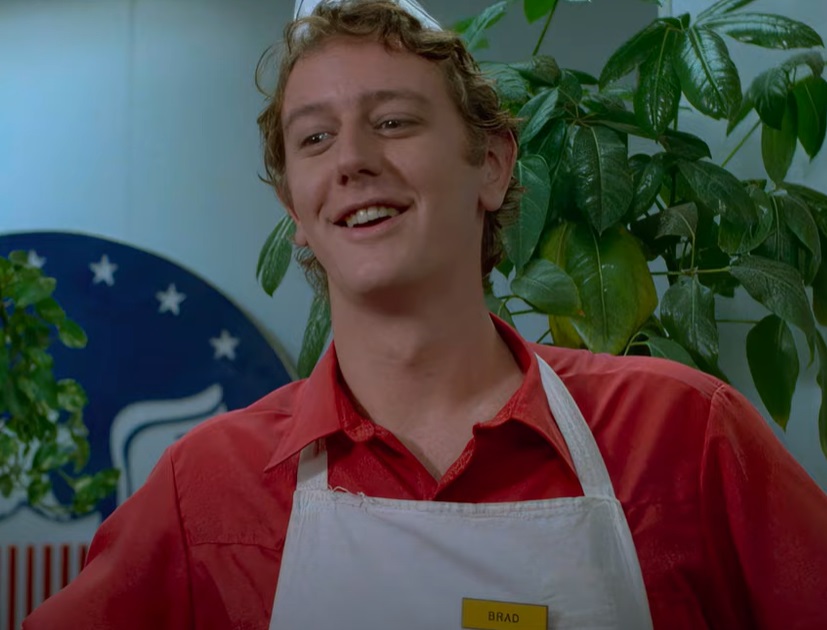 Universal, Fast Times at Ridgemont High (1982)
Universal, Fast Times at Ridgemont High (1982)
Veg out
"Veg out" is a term popular among young individuals for relaxing and unwinding, possibly derived from "vegetate" meaning a motionless existence. It's a laid-back way to express the need for a break.
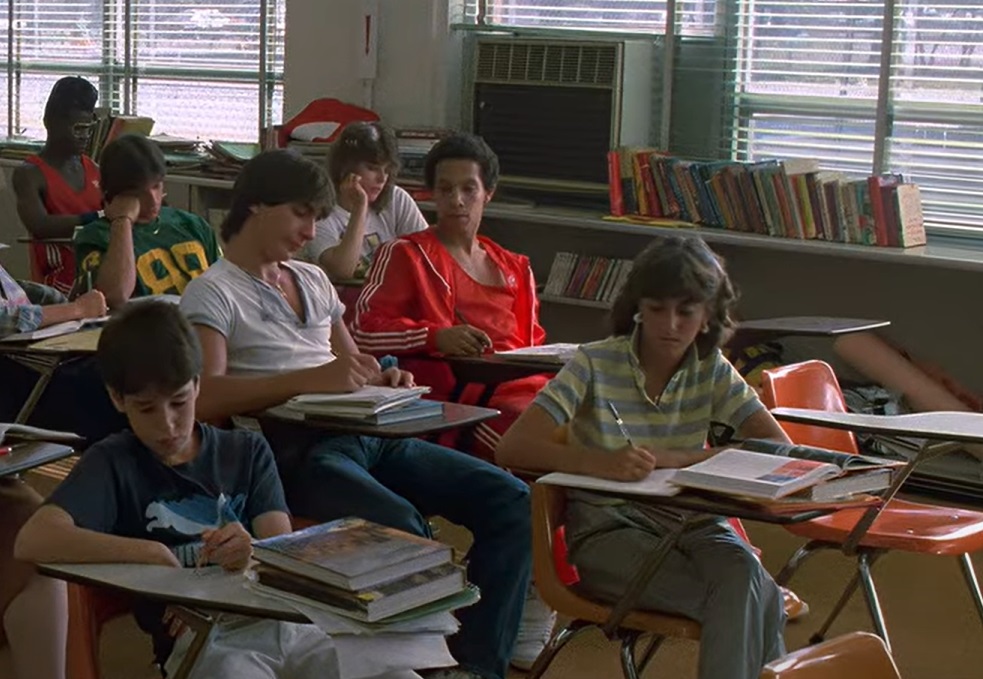 Universal, Sixteen Candles (1984)
Universal, Sixteen Candles (1984)
Wannabe
The term "wannabe" is used to describe individuals who try to imitate or join a specific group or lifestyle but fall short. Derived from "want" and "to be," it signifies desire to become something they're not, often implying lack of authenticity.
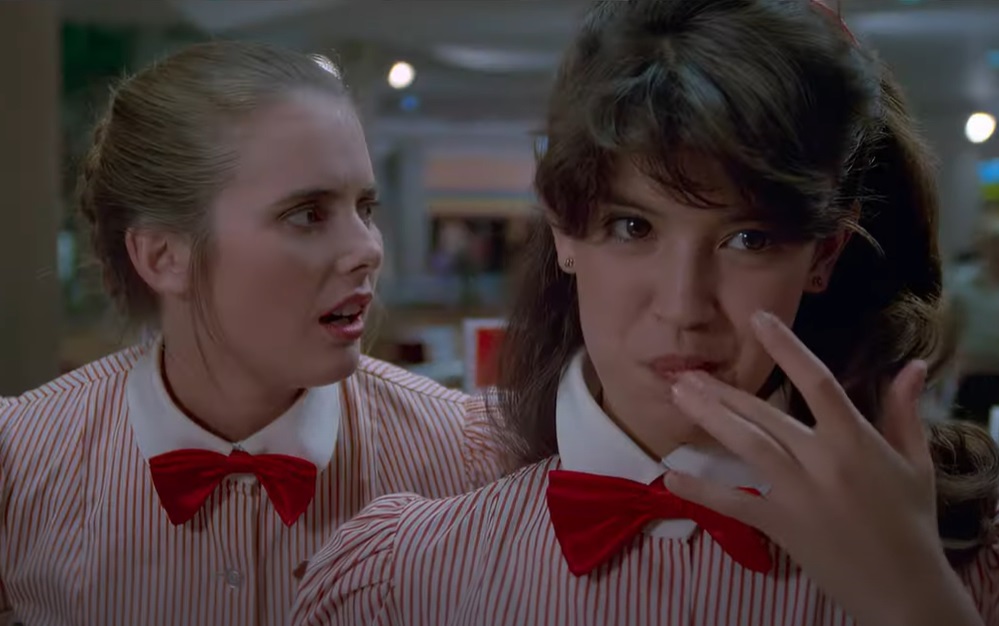 Universal, Fast Times at Ridgemont High (1982)
Universal, Fast Times at Ridgemont High (1982)
Wastoid
The term "wastoid" was used to describe someone who regularly used substances, spending a lot of time intoxicated without accomplishing anything.
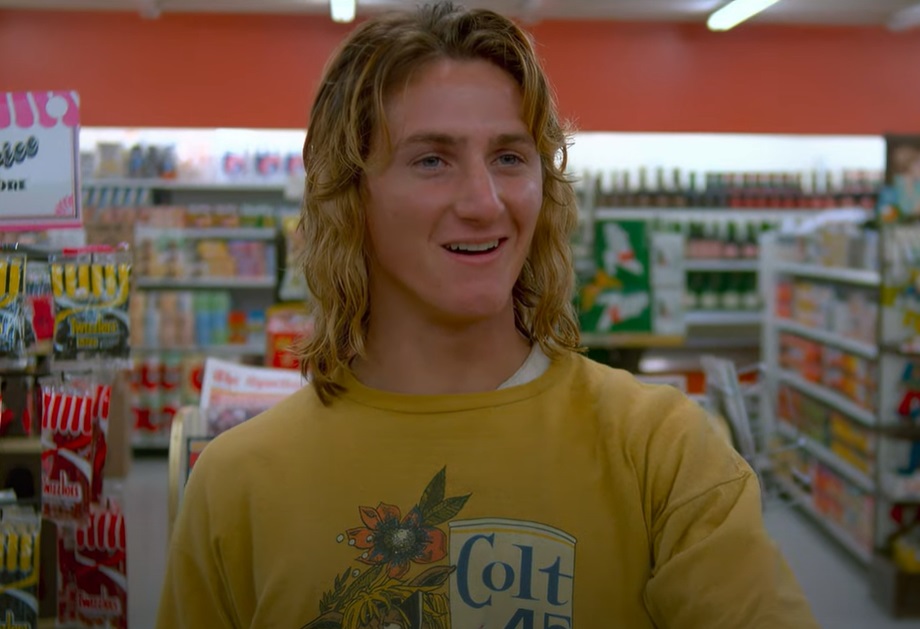 Universal, Fast Times at Ridgemont High (1982)
Universal, Fast Times at Ridgemont High (1982)
What's your damage
Teens in the US embraced the phrase "what's your damage?" as a casual way to ask about someone's well-being or the cause of their distress. It was often used teasingly or sincerely to show concern.
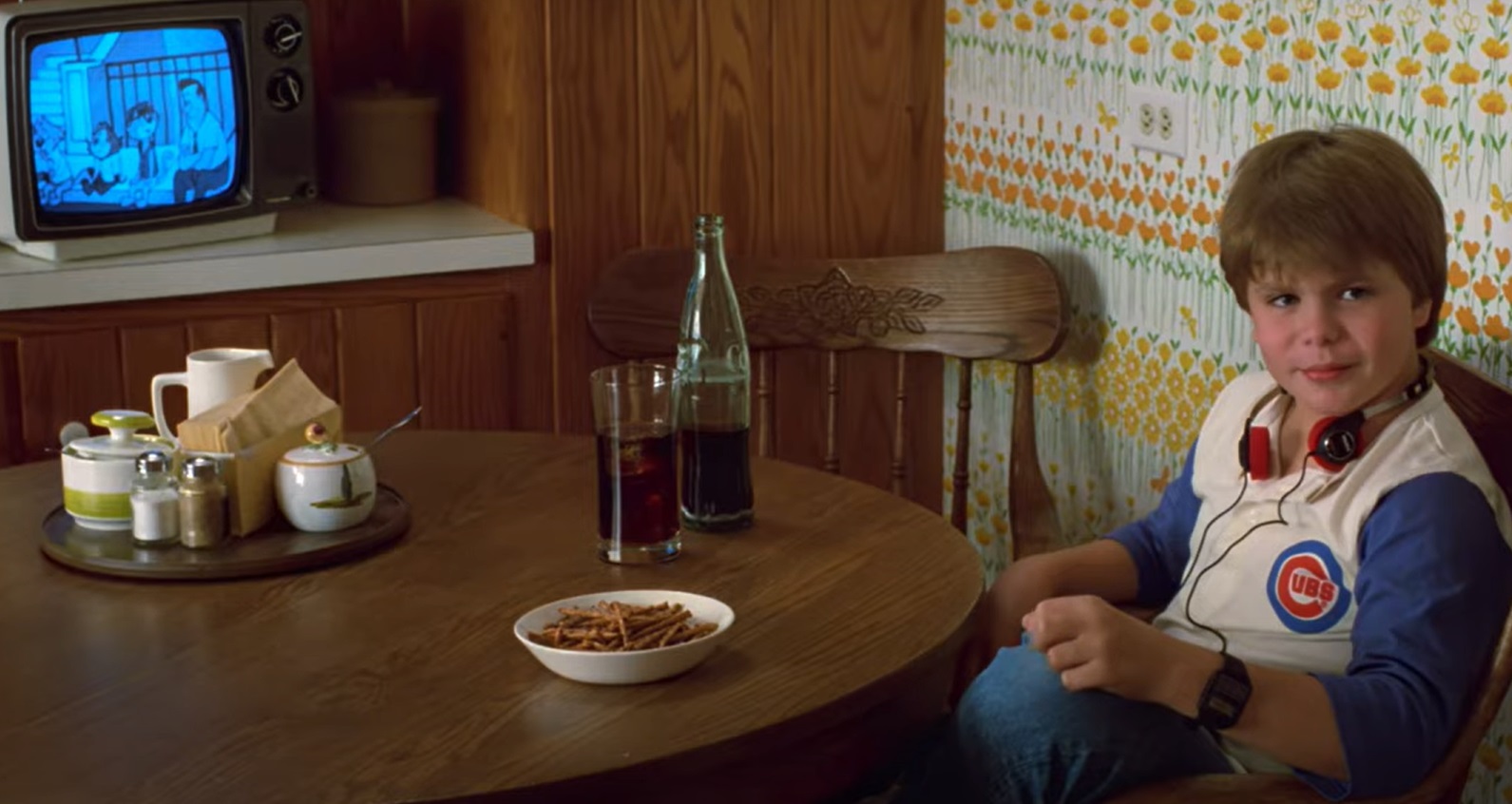 Universal, Sixteen Candles (1984)
Universal, Sixteen Candles (1984)
Wicked
"Wicked" was slang meaning impressive or outstanding, popular in regions like New England. Initially negative, it shifted to denote something fantastic or amazing in 1980s slang. Teens used it to discuss things they found impressive.
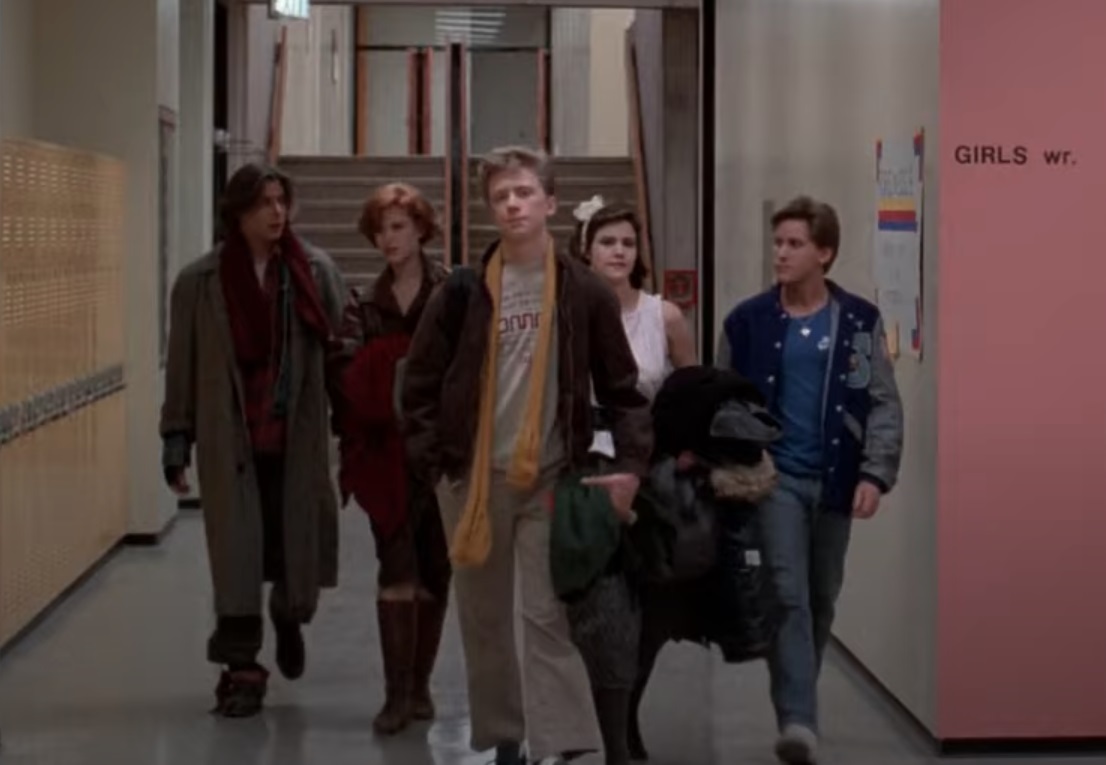 Universal, The Breakfast Club (1985)
Universal, The Breakfast Club (1985)

